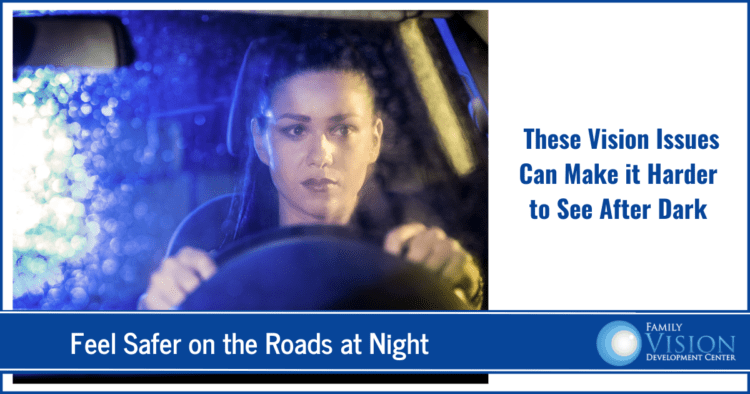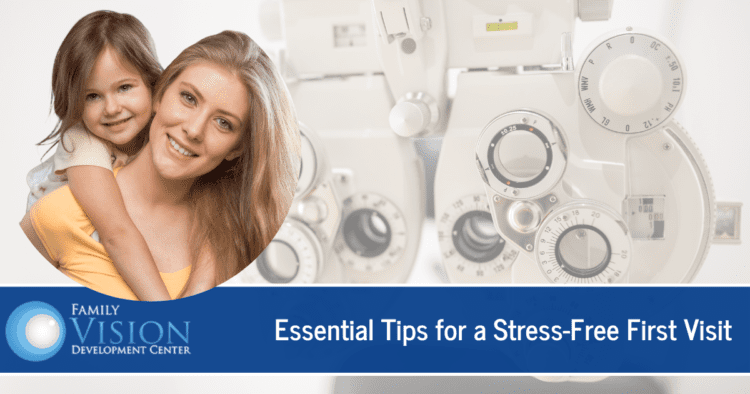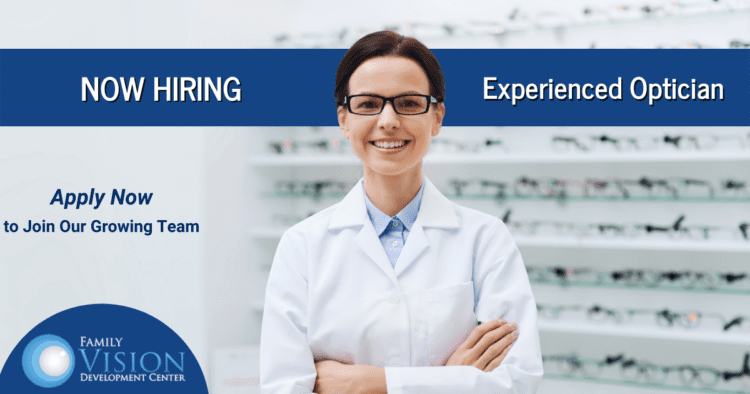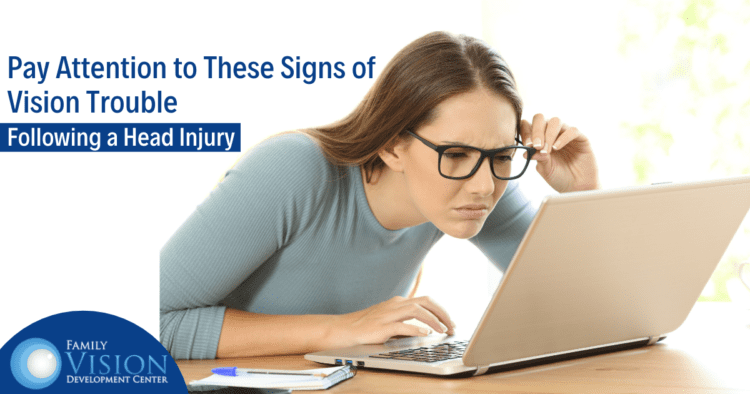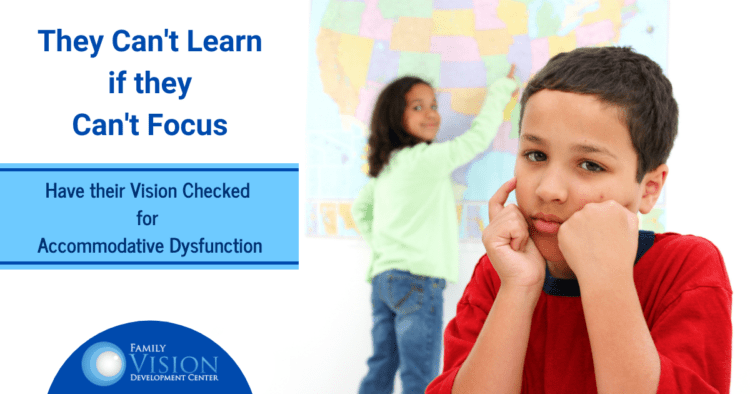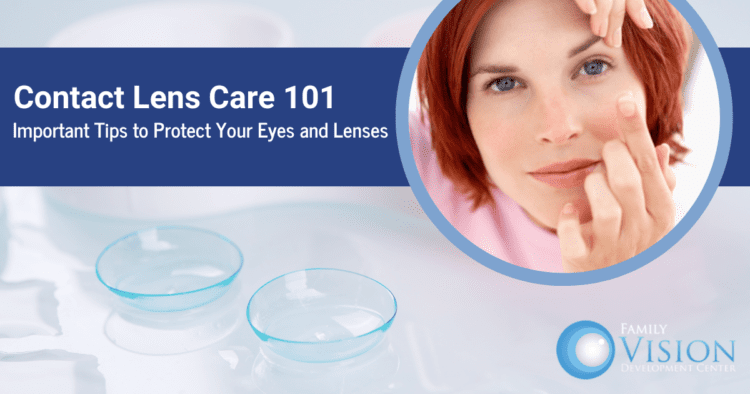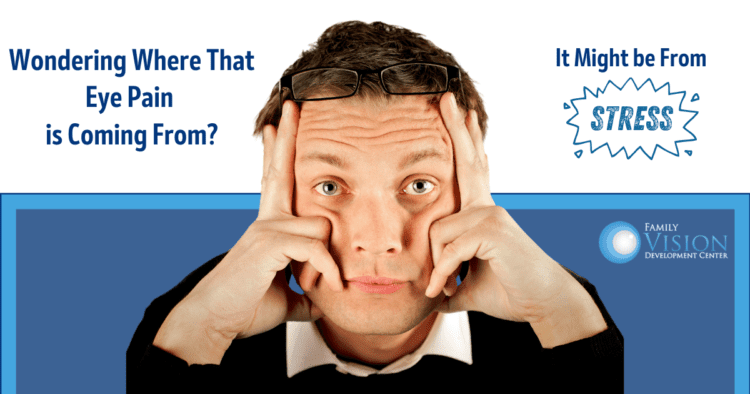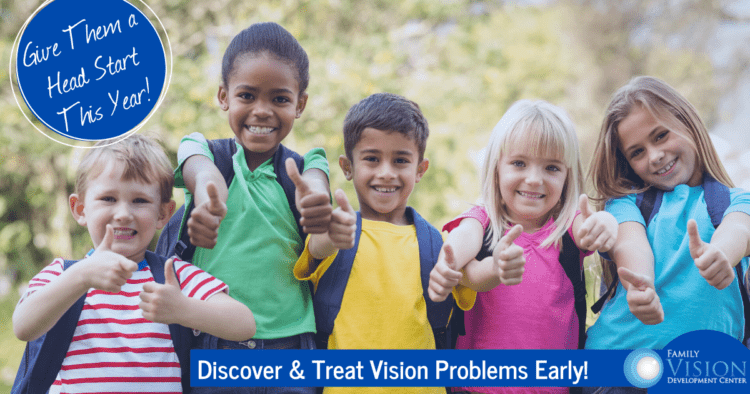A new year quite often brings about new hopes for ourselves. People make resolutions at the start of a new year to signify changes they want to make in their lives. Most resolutions have obvious benefits. However, some have the hidden benefit of protecting your vision as well. Healthy vision is important in all areas of life, so if you plan on making a change in 2022, why not try one of these resolutions with double the perks!
Resolutions that Protect your Vision
While there are endless possibilities for new years’ resolutions, the following can also contribute to overall healthier vision.
- Quit Smoking – Of all the new year’s resolutions, this is one of the most common by far. There are so many health benefits to giving up cigarettes. But people often do not realize how smoking can affect your vision. People who smoke have an increased risk of developing age-related macular degeneration, cataracts, glaucoma, diabetic retinopathy and dry eye syndrome. Quitting is definitely not easy, but it can vastly improve your eye health.
- Eat healthier – Eating healthy usually means cutting back on the junk food and adding more fruits and vegetables into your diet. As it happens, fruits and vegetables contain a number of vitamins and minerals that are known to be beneficial to your vision. Omega-3 fatty acids, vitamin E, vitamin C and beta carotene can be found in fish, nuts, citrus fruits, leafy green vegetables, carrots and potatoes. These important nutrients can reduce the risk of eye problems like dry eye, macular degeneration and cataracts.
- Exercise more – Getting more exercise can certainly help you get back into those favorite pants. But research has shown that regular exercise can also promote healthy vision and protect against eye damage. There is a strong correlation between obesity and major eye diseases like glaucoma, macular degeneration, cataracts and diabetic retinopathy. Therefore, losing extra weight can help to decrease the risk of developing one of these dangerous issues. Additionally, cardio exercise increases the flow of blood to the optic nerve and retina, which can help sustain healthy vision.
- Get outside more often – Getting out in the fresh air can lift your spirits, reduce stress and even make you more focused. And on top of those great benefits, getting outside can help improve your vision! Indoor lighting can cause increased strain on your eyes, which can cause lasting damage over time. Additionally, being outside means less time in front of a digital screen, which can lower the risk of computer vision syndrome (also known as digital eye strain).
One Bonus Resolution
The above resolutions are all great choices to live a better, healthier lifestyle, and take care of your vision at the same time. But one additional promise you should make to yourself in this new year, and each year after that, is to get regular eye exams. Many eye diseases are manageable and even completely treatable if detected early enough. Your vision is so important to your overall quality of life, so you should do everything you can to protect it. Don’t wait – give us a call at 630-862-2020 to schedule your vision exam and get started on a very happy new year!
For many people, driving at night is no more difficult than driving during the day. But for others, nighttime driving presents additional challenges that they don’t experience when the sun is out. For example, certain vision issues can cause people to see halos around lights or increased glare on the roads. Additionally, they might experience blurred or clouded vision or eye fatigue when driving after dark.
If you experience difficulty driving at night, it may be due to one of the following reasons.
Nearsightedness
The answer to your vision problems at night may be as simple as nearsightedness, or myopia, which causes objects in the distance to be blurred. People with myopia often have difficulty driving at night. If this is the case, prescription eyeglasses or contact lenses could be the solution you need to restore your nighttime vision.
Cataracts
Cataracts occur when the eye’s lens becomes cloudy. This cloudiness causes things to become blurry, hazy or less colorful. Driving at night with cataracts is especially difficult, as they can cause light sensitivity, especially with oncoming headlights, as well as overall problems seeing in dark conditions. Glasses or contact lenses can help improve the symptoms of cataracts. However, if symptoms progress, surgery to remove them is also an option.
Vitamin or Nutrient Deficiency
Perhaps surprisingly, a lack of certain vitamins or minerals can have an effect on the ability to see clearly while driving at night. Vitamin A helps keep the retina healthy, and can be found in carrots and green leafy vegetables. People with low levels of Vitamin A, as is often the case for those with Crohn’s disease or celiac disease, often experience night vision issues. Additionally, a zinc deficiency reduces the positive effects of Vitamin A in the eye, which can contribute to poor night vision. Increasing these important nutrients might help to alleviate some difficulty while driving at night.
Retinal Diseases
Retinitis pigmentosa is a genetic disorder that affects the retina and how it responds to light. Although rare, a main side effect of this disorder is loss of night vision. While your vision may be normal during the day, it may take longer to adjust to the dark, thereby making driving at night much more difficult. A more common retinal disease that can affect night vision is age-related macular degeneration (AMD). One of the first signs of AMD is difficulty seeing at night, which happens during the early stages of this disease. It is important to visit your eye doctor as the first sign of night vision problems, so eye diseases can be detected and treated as early as possible.
Driving at night without proper visual skills can be an obvious safety hazard. If you feel like it is becoming more difficult to see clearly on the road when the sun goes down, please come see us for a vision evaluation. We have the appropriate tests to determine the cause of your nighttime vision problems, as well as effective treatment options to help improve your symptoms. Family Vision Development Center provides a wide range of eye care services for the whole family in a safe, comfortable environment. Give us a call at 630-862-2020 to schedule your appointment today.
If you’ve been dreading your child’s first eye exam because you think they will be scared or they won’t cooperate with the doctor, stop worrying! And more importantly, don’t let that discourage you from bringing them in. Regular eye exams starting at a very young age are so important for healthy vision. And there are many things you can do to prepare your child before your visit. Just remember, taking your child for their first eye exam does not have to be a stressful event. Just follow these proven tips and you’re sure to have a productive appointment.
Select an Appointment Time That Works With Your Child’s Schedule
Kids, like all of us, tend to feel a little more energetic at certain times of the day. So, if you want to make the optometrist visit as pleasant as possible, choose a time when your son or daughter is usually happy and well-rested. Scheduling their first eye exam during your child’s usual meal or nap time, immediately after a nap, or at the end of a long day can result in a cranky child who is reluctant to participate in the vision assessment. Don’t forget to allow additional time if your child’s eyes will be dilated or to select frames if needed.
Let Your Child Know What to Expect at Their First Eye Exam
Trying anything new can be scary, especially if it involves meeting a new eye doctor! If your child knows what to expect, they will understand that there’s nothing to be afraid of. Before your visit, explain that the doctor will examine their eyes in order to check their vision. This will probably involve putting some drops in their eyes as well as using a light to look into their eyes. It might make their vision a little blurry for a minute, but the drops are not painful.
Additionally, let your child know that they will be asked to identify different letters or pictures, both close up and far away. The doctor will give them easy instructions to follow during their exam and they need to try their best so the doctor can correctly diagnose any vision problems and offer a treatment as soon as possible.
Prepare for Possible Delays
The eye doctor will make every effort to see your child at the appointed time, but that doesn’t mean you won’t spend a little time in the waiting room completing paperwork. And of course, as with any medical office, there is always the possibility of an emergency causing unexpected delays. Prepare for any possible waiting time by bringing a few toys or books from home to keep your little ones occupied.
Make Sure Your Child is Comfortable
You know your child best and you know what their needs are when trying new things. When it comes to a first eye exam, some kids hop on the exam chair without prompting, while others aren’t quite as brave. If your young child is nervous or anxious, feel free to hold him or her in your lap during the assessment and examination. Older children may feel more confident if you stay by their sides or sit in a nearby chair during the visit with the optometrist.
At Family Vision Development Center, we encourage healthy vision habits for all members of the family, starting as early as 6 months old! Our skilled optometrists are not only trained in advanced vision therapy techniques, but they also make even our youngest patients feel comfortable and at ease during their visits. Don’t wait any longer! Call us at 630-862-2020 to schedule your appointment for that important first eye exam.
Additional information can be referenced here
The Family Vision Development Center is expanding, and we are seeking an experienced Optician to join our growing private Optometry/Vision Therapy office located in Aurora. We have a dynamic and energetic office with two Optometrists on staff. The successful Optician candidate should be prepared to work from 25 to 40 hours, which include morning and early evening hours with rotating Saturdays.
The candidate should be familiar with sales of glasses, contact lenses, contact lens training as well as a knowledge of pre-testing and pre-testing equipment. Additionally, experience with optical and medical billing is preferred but training will be provided. If you enjoy serving patients of all ages and have a strong work ethic and a desire to work in an optometric office with a unique perspective, we would like to talk with you!
Optician Job Responsibilities
- Review Optometrist’s prescriptions and orders based on medical charts.
- Operate pre-testing equipment or provide technician services as needed. Training will be provided.
- Educate patients on their lens options and help them make educated choices about what is appropriate for their medical needs and lifestyle preferences.
- Provide honest but compassionate feedback about eyewear choices.
- Achieve and maintain the high office standards while attending to the patients’ needs.
- Manage inventory of frames and contacts to ensure optimum customer satisfaction and product variety.
- Communicate with the Optometrists with questions or concerns about prescriptions and any other eye-related issues.
Optician Qualifications and Skills
- College degree preferred but high school or equivalent will be considered.
- 2+ years experience in the optical field required, specifically with dispensing glasses and contact lenses.
- Experience with all aspects of an optometric office including glasses and contact lenses.
- Ability to operate optical equipment.
- Excellent customer service, sales skills and attention to detail a must.
Pay: $15.00 – $20.00
About Family Vision Development Center
We are a full-service vision center offering comprehensive vision exams for eyeglasses, contact lenses and management of ocular disease including glaucoma, diabetes, macular degeneration and cataracts.
Our specialty is neuro-optometric rehabilitation and vision therapy services. What we do at The Family Vision Development Center is outside the scope of most optometric offices. We are a unique facility whose specialty is the diagnosis and treatment of binocular (two-eyed) vision dysfunctions, learning-related vision issues and vision therapy.
Our patients trust us with their vision, and we do not take that responsibility lightly. In that respect, we continually strive to provide our patients with the most comprehensive neuro-optometric vision evaluations along with individualized treatment programs using the most current and effective equipment and methods. Additionally, our philosophy of whole body wellness extends beyond the eyes. This refreshing view of vision care allows us to ‘see’ the whole person and make recommendations that extend beyond just clear vision and healthy eyes.
If you are interested in joining our team, see below to submit your resume.
Submit Resume
Qualified Optician candidates should submit a resume to: dr.martin@fvdcpc.com
A blow or jolt to the head is a serious thing and should never be taken lightly, as it can result in a traumatic brain injury (TBI). Whether it is mild (often referred to as a concussion) or severe, a TBI can have lasting effects, especially when it comes to your vision. There are many events or circumstances that can cause a concussion or traumatic brain injury, such as:
- Falling
- Stroke
- Blunt force trauma
- Car accident
- Physical assault
- Sports activity collision
If you have experienced any of these, you should be on the lookout for some common visual symptoms that often follow a concussion or TBI.
Vision Issues Often Associated with a Brain Injury
A majority of people who experience a TBI or concussion-related injury will suffer from one or more of the following visual impairments:
- Blurry vision
- Double vision
- Problems with eye movements or tracking
- Depth perception issues
- Peripheral vision loss
- Light sensitivity
- Reading difficulties
- Aching eyes
- Eye teaming issues
- Improper eye alignment/eye turn
Unfortunately, many instances of injury-related vision problems go undiagnosed in the beginning. The symptoms may seem mild or insignificant at first, and therefore medical treatment is not deemed necessary. However, if left untreated, these issues can become much more serious.
Vision Therapy Following a Brain Injury
If you experience any kind of injury to the head, it is important to see both your medical doctor and an eye doctor who has specific training in TBI and concussion-related vision problems. At Family Vision Development Center, our professional team has advanced training in neuro-optometric vision rehabilitation, which means we understand these types of injuries as well as the treatment needed to restore proper vision. Using customized, therapeutic eye exercises, our specialized vision therapy programs are an extremely effective way to retrain the eyes and brain in order to recover normal visual skills.
We understand that each patient is unique and each vision therapy treatment plan should fit their specific needs. As such, we provide each of our patients with a comprehensive neuro-optometric vision evaluation in order to create an individualized treatment program using the most current and effective vision therapy methods available. We look forward to getting your vision back to normal so you can get back to enjoying life! Give us a call at 630-862-2020 to schedule your appointment.
Do you ever go outside on a sunny day and the bright light actually causes pain in your eyes? Or maybe you walk into a brightly-lit room and immediately feel the need to squint? This negative reaction to light is known as photophobia, or light sensitivity. Photophobia is not an eye disease, but rather a symptom of a number of possible conditions.
Possible Reasons for Light Sensitivity
There are a number of possibilities when it comes to determining why your eyes are sensitive to light. Some proven causes include:
Migraine headaches
Migraines are severe headaches that can be triggered by a number of factors, such as hormonal changes, stress or the environment. Light sensitivity is a very common symptom of migraines and many people feel the need to dim the lights during a migraine attack in order to help ease the pain.
Conditions That Affect the Brain
Photophobia can be associated with certain serious brain conditions. Symptoms of these conditions can include inflammation in or surrounding the brain, or bleeding near the brain. These conditions can be life-threatening and immediate care should be sought if they are suspected.
- Encephalitis
- Meningitis
- Subarachnoid hemmorrhage
- Mild traumatic brain injuries (mTBI) or concussions
Conditions That Affect the Eyes
Light sensitivity can also be caused by a number of eye conditions including:
- Dry eye syndrome – tears do not provide adequate moisture
- Conjunctivitis – also known as “pink eye”
- Cataracts – cloudy coverings over the lenses of the eyes
- Corneal abrasion – a scratch or injury to the cornea
- Scleritis – inflammation of the white part of the eye
Medications
Certain medications have been known to cause excess light sensitivity for some people, including:
- Some antibiotics
- Tricyclic antidepressants
- Certain acne medications
- Medications used to treat malaria
- Some heart medications
- Certain diabetes drugs
What to Do for Photophobia
As previously stated, light sensitivity is a result of an underlying condition. Therefore, treatment is most often accomplished by addressing that specific condition. Once the underlying condition is treated, the light sensitivity should resolve on its own. Additionally, you can try the following suggestions:
- Wear quality sunglasses with polarized lenses when outdoors
- Ask your doctor if light sensitivity is a side effect of any medications you are currently taking
- Try to increase natural lighting at the office by turning off the fluorescent bulbs and opening window blinds
- Get regular vision and medical exams to detect any abnormalities as early as possible
At Family Vision Development Center, we can help determine the underlying cause of your photophobia and work with you to discover the best treatment options. Regular comprehensive vision exams are the best way to monitor your eye health, as we can quickly notice any changes in vision and start treatments as early as possible. Contact our Aurora office at 630-862-2020 to learn more or to schedule an appointment.
Accommodative dysfunction is a complex term for a very common vision disorder in both kids and adults. In short, it means difficulty shifting your focus from near to far. For example, you may be focused on a computer screen and then look across the room, only to find it difficult to regain focus at either distance.
Why Accommodative Dysfunction Should be Corrected
Accommodative dysfunction can be a very frustrating vision disorder and can make daily life difficult for kids and adults, especially in the following situations.
Classroom performance – when a child has trouble focusing at varying distances, it can be hard to achieve success in school. Kids spend much of their school day looking from close objects on their desks to distant objects like the teacher at the front of the room. When this causes blurred vision, it can make classroom activities and learning much more difficult and their grades can suffer because of it.
Participating in sports – many kids are interested in joining their school athletic teams but are limited in their ability due to their focusing problems. Playing a sport well depends on strong visual skills, so it can be very frustrating for kids to lose the opportunity to play simply because of a vision disorder. Additionally, playing a sport, even for fun, can become dangerous if the athlete cannot properly focus on the activity going on around them.
Work performance – Many people have jobs that depend on acute visual ability. Warehouse or assembly line workers depend on their ability to properly focus on their surroundings for safety reasons. And even business professionals need to focus while in meetings and presentations. Accommodative dysfunction is typically diagnosed in kids, but adults should also be aware of the issue and understand that there are treatment options.
Vision Therapy as a Treatment for Accommodative Dysfunction
One very effective form of treatment for accommodative dysfunction is vision therapy. Through a series of specialized eye exercises, this sort of physical therapy for the eyes and brain can retrain your visual system to restore proper focusing. The sessions are short and take place right in our Aurora location.
We are Vision Therapy Specialists
Vision therapy is not a “one size fits all” treatment program. Each program should be individually tailored based on the specific issues to be corrected. At Family Vision Development Center, our doctors have advanced training in a variety of vision therapy techniques, including neuro-optometric vision rehabilitation, syntonic light therapy and more. We perform a thorough vision examination and determine the best course of treatment for each patient, and are committed to providing the best possible care in a safe, comfortable environment. Contact our office at 630-862-2020 to schedule an appointment.
Additional information can be referenced here
If you’ve made the decision to wear contact lenses to correct your vision, you absolutely must care for them properly if you want to avoid issues. In order to keep your eyes healthy, comfortable and injury-free, remember the following helpful tips when caring for your contact lenses.
Personal Care
There are a number of things you can do in terms of personal hygiene and activity that will help keep your contact lenses clean and sanitary, as well as keep your eyes protected from infection or irritation.
- DO – Wash your hands thoroughly with a mild soap and rinse completely before touching the contact lenses
- DON’T – Use any lotions, oils, or cosmetics right before handling the lenses
- DO – Keep your fingernails short and smooth and try to avoid contact between your nails and the lenses
- DON’T – sleep in your contact lenses
- DON’T – share your contact with anyone else
Contact Lens Care
Proper care of contact lenses requires following the specific routine prescribed by your eye care professional. The following tips will ensure the best experience possible:
- DO – Use fresh, unexpired lens solution and carefully follow the specific instructions on the solution bottle
- DON’T – Alternate or mix solutions, as not all solutions are safe for all lenses
- DON’T – Put lenses in your mouth or use saliva to lubricate your lenses
- DON’T – Rinse your lenses in tap water, as the lens could wash down the drain, or the impurities in the water may damage the lenses
- DO – store your contact lenses in an appropriate lens case, and clean the case regularly to avoid bacteria growth
If you ever notice symptoms of redness, itching, burning, eye pain, discomfort or any abnormal changes in your vision it is important to remove the contact lenses and contact your optometrist immediately.
Regular Eye Exams are an Important Part of Wearing Contacts
The professional eye care providers at Family Vision Development Center in Aurora are here to help make your contact lens experience as easy as possible. We offer the latest in contact lens technologies along with a variety of designs, such as daily wear, extended wear and specialty lenses. Call us at 630-862-2020 to schedule your appointment or visit www.fvdcpc.com to learn more about our practice.
Additional information can be referenced here.
Stress levels have been at all-time highs for so many people throughout the past year. Job worries, money concerns, remote learning and more can cause anxiety levels to increase – and that’s not good for anyone. Aside from the possible effects on your heart and blood vessels, muscles, intestines and nervous system, stress can also have an impact on your vision.
How Stress and Vision are Related
Did you know that your eyes and vision are an extension of your brain? There are six muscles connected to each eye, and they receive signals from the brain. These signals direct the eyes movements and, thus, control their ability to focus. When you are stressed, your brain goes through a number of changes and signals some of your body’s glands to release hormones in an attempt to deal with the stressor. With the brain undergoing all of these alterations, the eyes may become impacted as a result of their connection.
Possible Vision Effects
When you experience a stressful moment, adrenaline is pumped through the body at great speeds. This causes the pupils to dilate, which increases the amount of light that enters the eyes. If too much light enters during a moment of anxiety, or if you go through repeated stressful moments and light penetrates the eyes, the following can occur:
- Light sensitivity
- Eye aches and strain
- Blurriness
- Eye twitching
- Eye floaters
- Tunnel vision
- Double vision
- Very dry or very wet eyes
Most stress-related eye issues are minor and temporary. If you find yourself experiencing any of the above issues, try the following:
Closing your eyes
Taking deep breaths and/or meditating
Finding a distraction to take your mind off what is bothering you
Exercising (such as walking or running)
Writing in a journal
Don’t Delay Treatment
Long-term stress or anxiety can actually cause serious strain on your eyes, so it is important to see us if these issues do not resolve themselves quickly. A comprehensive vision exam can help us discover the true cause of the vision problems, as well as allow us to determine the best form of treatment. Additionally, if stress-reduction therapies are necessary, we can work with your medical doctor or other healthcare providers to find the right overall solutions.
At Family Vision Development Center, we take a one-on-one approach to vision care that focuses on whole body wellness that extends beyond the eyes. We are dedicated to providing safe, personalized care to members of the whole family in a welcoming environment. Contact us at 630-862-2020 for all of your eye care needs.
Additional information can be referenced here
When a child has vision problems, it can affect many areas of their daily life, including their learning ability. And it may not be as evident as blurred vision. In fact, a child could have perfectly clear eyesight, but still have vision issues that can prevent them from achieving success in school.
Types of Vision Problems
There are several types of vision problems, all of which can affect your child’s ability to read, write and succeed in the classroom in different ways. The following are some common vision problems in children that may interfere with learning ability.
Children with a refractive error have an irregularly shaped cornea that does not bend light properly. This can cause blurred vision, difficulty reading things up close or a crossing of the eyes. If your child holds a book very close to their eyes or squints when trying to read or see the front of the classroom, they may be suffering from a refractive vision problem.
- Functional Vision Problems
These refer to problems affecting the way that the eyes and brain work together. This can lead to problems in eye teaming (binocularity), accommodation (i.e., the ability of the eye to focus on an object at different distances), hand-eye coordination, peripheral vision or fine eye movements. A child with a functional vision problem may experience double vision, transposing letters, confusing similar words, difficulty with reading, spelling and math, and poor performance in sports.
- Perceptual Vision Problems
Perceptual vision problems are characterized by difficulty understanding and identifying what one sees. A child with poor visual perception may have 20/20 vision, but might have trouble distinguishing between two similar letters (such as u and n), putting a puzzle together or finding a pair of matching socks in a drawer. Other signs of a visual perception disorder could include skipping words or lines when reading, memorization trouble, or understanding a map.
Vision Therapy is an Effective Solution for Kids
One proven treatment for kids with visual concerns like those listed above is vision therapy. This customized treatment plan consists of specialized eye exercises that work to retrain the eyes and brain in order to correct or restore visual ability. At Family Vision Development Center, our providers are trained in a variety of advanced vision therapy techniques, so we can create a program that targets your child’s individual vision issues.
While parents may be quick to assume that their child’s learning ability is determined by their study habits, or even genetics, they may not even think to look at their vision. A comprehensive eye exam at Family Vision Development Center can uncover any vision conditions or disorders that can lead to poor performance in school. Early detection often provides more opportunity for treatment options, so it is recommended that kids get yearly vision exams to quickly discover any signs of a problem. Contact us today at 630-862-2020 to schedule an appointment.



